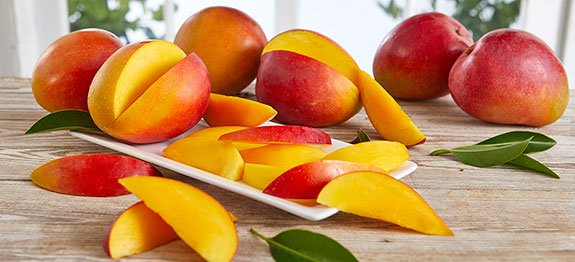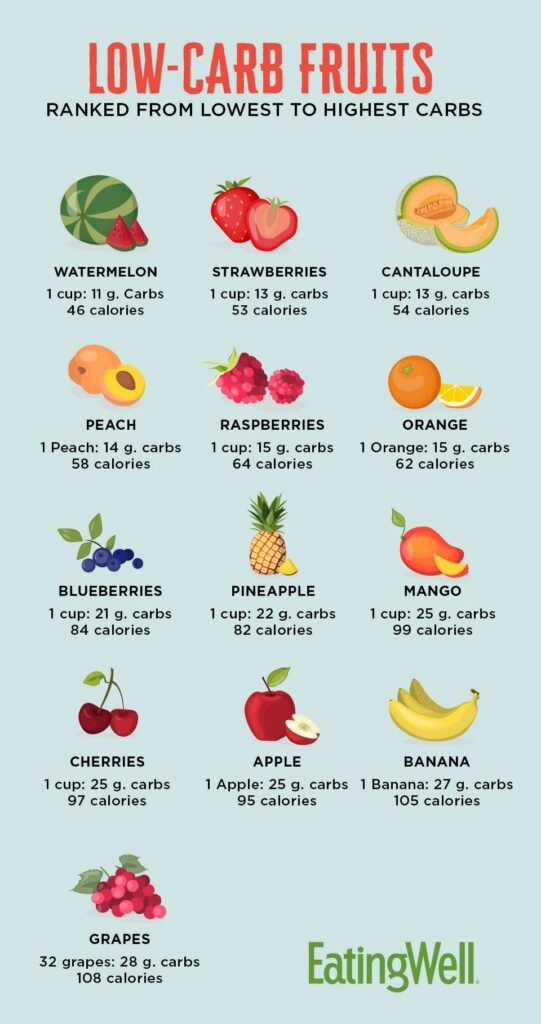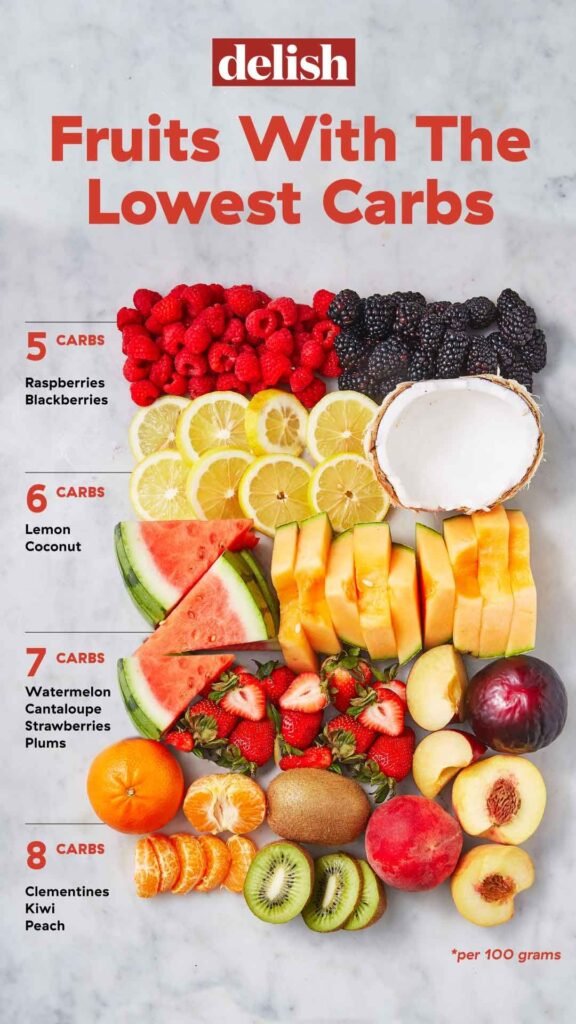If you’re on a low-carb diet or simply trying to watch your carb intake, we have some exciting news for you – peaches are here to save the day! Bursting with juicy sweetness and a refreshing taste, peaches are not only a summertime favorite but also a surprisingly low-carbohydrate fruit. Whether you enjoy them on their own, in a salad, or blended into a delicious smoothie, peaches are a guilt-free option that will satisfy your cravings without causing a spike in your carb count. So, grab a juicy peach and let’s explore the wonderful world of this delectable low-carb fruit!

Nutritional profile of peaches
Peaches are a delicious and nutritious addition to any diet. They are a low-calorie fruit that is also low in carbohydrates, making them a great option for those watching their carb intake. In addition to being low in carbs, peaches are also packed with essential vitamins and minerals. Let’s take a closer look at the nutritional profile of peaches.
Calories in peaches
One medium-sized peach contains approximately 59 calories. This makes peaches a great choice for those looking to maintain or lose weight, as they are relatively low in calories compared to other fruits.
Carbohydrates in peaches
Peaches are a low-carb fruit, containing about 14 grams of carbohydrates per medium-sized peach. This low carbohydrate content makes peaches suitable for individuals following low-carb or keto diets.
Fiber content in peaches
Fiber is an essential nutrient that aids in digestion, promotes satiety, and helps regulate blood sugar levels. Peaches are a good source of dietary fiber, with around 2 grams of fiber per medium-sized peach. Including fiber-rich foods like peaches in your diet can help support a healthy digestive system.
Vitamins and minerals in peaches
Peaches are not only low in carbohydrates but are also packed with essential vitamins and minerals. They are a good source of vitamins A and C, which are important for immune function and healthy skin. Peaches also contain potassium, which is necessary for maintaining proper heart function and regulating blood pressure.
Low carbohydrate content
Carbohydrate content compared to other fruits
When it comes to carbohydrates, not all fruits are created equal. Peaches are considered a low-carb fruit compared to others. For example, a medium-sized peach contains fewer carbohydrates than an apple or a banana. If you’re following a low-carb diet or watching your carbohydrate intake for any reason, peaches can be an excellent choice for satisfying your fruit cravings while keeping your carb intake in check.
Benefits of low-carb fruits
Choosing low-carb fruits like peaches can have several benefits. Firstly, they are a great option for individuals with diabetes or those trying to manage their blood sugar levels. Since peaches have a lower impact on blood sugar compared to high-carb fruits, they are less likely to cause spikes in blood sugar levels. Secondly, low-carb fruits are often higher in fiber, which can help promote feelings of fullness and aid in weight management. Finally, incorporating low-carb fruits into your diet can provide you with essential vitamins and minerals while keeping your overall carbohydrate intake under control.
Peaches as a low-carb snack
Peaches make a fantastic low-carb snack option. Their natural sweetness and juicy texture can satisfy cravings for something sweet without compromising your low-carb goals. Enjoy a sliced peach on its own, or pair it with a handful of nuts or a dollop of Greek yogurt for a more satisfying snack. The low carbohydrate content of peaches makes them a versatile fruit that can be enjoyed in various ways while still keeping your carb intake in check.
Health benefits of peaches
Rich in vitamins and minerals
Peaches are not only delicious but also packed with essential vitamins and minerals. They are an excellent source of vitamin C, known for its immune-boosting properties. Vitamin C is also important for collagen production, which is essential for maintaining healthy skin. Peaches also contain vitamin A, which is crucial for maintaining good eye health and supporting proper immune function. By incorporating peaches into your diet, you can easily boost your intake of these essential nutrients.
High in antioxidants
Antioxidants are compounds that help protect our cells from damage caused by harmful molecules called free radicals. Peaches are rich in antioxidants such as vitamin C and beta-carotene, which give them their vibrant color. These antioxidants can help reduce the risk of chronic diseases and promote overall health and wellbeing.
Supports digestive health
Peaches are known for their high fiber content, which is essential for maintaining a healthy digestive system. Fiber helps regulate bowel movements and prevents constipation. Including high-fiber foods like peaches in your diet can promote regularity and support a healthy gut.
Promotes healthy skin
Peaches are not only delicious but can also contribute to healthy and glowing skin. The high vitamin C content in peaches helps promote collagen production, which is essential for maintaining the elasticity and firmness of the skin. Additionally, the antioxidants found in peaches can help protect the skin from damage caused by free radicals, reducing signs of aging and promoting a youthful complexion.
Boosts immunity
As mentioned earlier, peaches are high in vitamin C, which is well-known for its immune-boosting properties. Consuming foods rich in vitamin C, like peaches, can help strengthen the immune system and reduce the risk of infections and illnesses. Including peaches in your diet can be a tasty and natural way to support your immune system.
May aid in weight management
If you’re trying to lose or maintain weight, peaches can be a great addition to your diet. Their low-calorie and low-carb nature make them a satisfying and guilt-free snack option. The fiber content in peaches can also help promote feelings of fullness and reduce overeating. By incorporating peaches into your weight management plan, you can enjoy a sweet and nutritious fruit while keeping your calorie and carbohydrate intake in check.
Carbohydrate counting for managing blood sugar
Understanding carbohydrates
Carbohydrates are one of the three main macronutrients and are found in various foods, such as bread, rice, pasta, fruits, and vegetables. They are our body’s primary source of energy. Carbohydrates can be classified into two types: simple and complex. Simple carbohydrates, like those found in sugary snacks and desserts, are quickly digested and can cause a rapid rise in blood sugar levels. On the other hand, complex carbohydrates, found in whole grains, legumes, and fruits like peaches, are digested more slowly, resulting in a slower release of glucose into the bloodstream.
Effects of carbohydrates on blood sugar
For individuals with diabetes or those trying to manage their blood sugar levels, monitoring carbohydrate intake is crucial. When carbohydrates are consumed, they are broken down into glucose, which enters the bloodstream and raises blood sugar levels. Controlling carbohydrate intake can help prevent spikes in blood sugar levels, which are undesirable for individuals with diabetes.
Peaches in a low-carb diet
Peaches can be an excellent choice for individuals following a low-carb diet or managing their blood sugar levels. The low carbohydrate content of peaches means they have a minimal impact on blood sugar levels compared to high-carb fruits or snacks. Including peaches in your low-carb diet can provide you with essential vitamins, minerals, and fiber while still maintaining stable blood sugar levels.
Carbohydrate counting for diabetes management
For individuals with diabetes, carbohydrate counting is an effective way to manage blood sugar levels. This practice involves estimating the number of carbohydrates in foods and adjusting insulin doses or medication accordingly. When it comes to peaches, one medium-sized peach contains approximately 14 grams of carbohydrates, which can be easily incorporated into a diabetes management plan. By keeping track of your carbohydrate intake and including peaches in moderation, you can enjoy the deliciousness of this low-carb fruit while still effectively managing your blood sugar levels.
Peaches in weight loss diets
Low-calorie fruit option
When it comes to weight loss, incorporating low-calorie foods into your diet is key. Peaches are a great option as they are relatively low in calories. One medium-sized peach contains about 59 calories, making it a satisfying and guilt-free snack or addition to meals. By including peaches in your weight loss diet, you can enjoy a tasty fruit without worrying about excessive calorie intake.
Fiber content for satiety
Fiber plays a vital role in weight management as it helps promote feelings of fullness and reduces overeating. Peaches are a good source of dietary fiber, with approximately 2 grams per medium-sized peach. The fiber content in peaches can help you feel satisfied for longer, reducing the temptation to snack on unhealthy options. By incorporating peaches into your weight loss diet, you can utilize their fiber content to support your satiety and ultimately, your weight loss goals.
Replacing high-carb snacks with peaches
Snacking can often be a hindrance to weight loss efforts, especially if the snacks consumed are high in carbohydrates and calories. Instead of reaching for high-carb snacks like chips or cookies, consider replacing them with peaches. The natural sweetness and juiciness of peaches can provide a satisfying snack option while delivering essential vitamins and minerals. By making this simple swap, you can enjoy a nutritious and low-calorie snack that supports your weight loss journey.
Incorporating peaches into a low-carb diet
Ideas for consuming peaches
There are numerous ways to enjoy peaches in a low-carb diet. You can enjoy them simply sliced and eaten on their own as a refreshing snack. Another option is to add them to a salad for added flavor and natural sweetness. Peaches can also be enjoyed in smoothies, grilled for a delicious dessert, or baked into low-carb treats like cobblers or muffins. Be creative with how you incorporate peaches into your diet and discover new, tasty ways to enjoy this versatile fruit.
Peach recipes
If you’re looking for recipe inspiration, there are plenty of peach recipes available online. From peach salsa and grilled peach salads to peach smoothies and peach crumbles, the possibilities are endless. Experimenting with different recipes can help you discover new and exciting ways to incorporate peaches into your low-carb diet. Whether you prefer savory or sweet dishes, there is a peach recipe out there that will satisfy your taste buds.
Pairing peaches with low-carb foods
To make your meals more satisfying and balanced, consider pairing peaches with low-carb foods. For example, you can add sliced peaches to a bowl of Greek yogurt for a protein-packed and fruity breakfast option. Another idea is to combine peaches with a handful of nuts for a satisfying and nutritious snack. By pairing peaches with low-carb foods, you can create balanced meals and snacks that support your low-carb lifestyle.
Tips for buying and storing peaches
When buying peaches, it’s essential to choose ones that are ripe but not overripe. Look for peaches that have a slight give when gently pressed and have a fragrant aroma. If the peaches are still firm, you can leave them at room temperature to ripen. Once ripe, store them in the refrigerator to prolong their freshness. Remember to handle them with care as they can bruise easily. By following these tips, you can ensure that your peaches stay fresh and delicious for longer.
Possible drawbacks of peaches
Impact on blood sugar for individuals with diabetes
While peaches are generally considered a low-carb fruit, individuals with diabetes should still monitor their blood sugar levels when consuming peaches. Each person’s response to carbohydrates can vary, so it’s important to gauge how peaches specifically affect your blood sugar levels. If you have any concerns, it’s always best to consult with a healthcare professional or a registered dietitian.
Allergies to peaches
Although rare, some individuals may have an allergy to peaches. Peach allergy can manifest as itching or swelling in the mouth or throat, hives, or even anaphylaxis in severe cases. If you suspect an allergy to peaches or have experienced any adverse reactions after consuming them, it’s essential to seek medical attention and get a proper diagnosis.
Pesticide residues on conventionally grown peaches
Conventionally grown peaches can sometimes contain pesticide residues, which can be a concern for some individuals. If you prefer to reduce exposure to pesticides, you can opt for organic peaches, which are grown without the use of synthetic pesticides. Washing conventionally grown peaches thoroughly can also help reduce pesticide residues.
Conclusion
Peaches are a delightful and nutritious addition to a low-carb diet. With their low carbohydrate content, high fiber content, and essential vitamins and minerals, peaches offer numerous health benefits. They are a great choice for individuals looking to manage their blood sugar levels, support weight loss, and boost overall health. Incorporating peaches into a low-carb diet is easy and can be done in various delicious ways. Whether enjoyed on their own, in salads, smoothies, or paired with other low-carb foods, peaches provide a tasty and nutritious treat to help you achieve your health and wellness goals. So go ahead, indulge in the deliciousness of this low-carb fruit and reap all its wonderful benefits!




